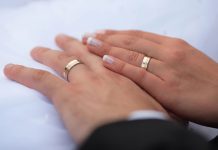The death of Breonna Taylor is tragic. The argument has been made for many of the recent shootings that if the victims had not broken the law or had not resisted arrest they would not have been shot. That issue is for each to decide. However, Taylor was asleep in her home and had done nothing wrong. Her boyfriend did shoot, but he owned a legal gun, as the Second Amendment allows, and he protected his home from an invasion.
Here is where it gets difficult. As of now, a grand jury has ruled not to indict the police officers involved. As expected, this news was not well received by those wanting justice for Taylor. However, unless wrongdoing is shown in the grand jury, while there would be no justice for Taylor, arresting the officers involved to satisfy the protesters would not be justice either.
History offers a similar example. On March 5, 1770, a crowd grew in front of the customs house in Boston, an early version of an IRS office, protesting what they saw as tyrannical taxation. As a small body of soldiers came to the aid of those inside the office, the growing mob began throwing insults at first, but eventually snowballs at the soldiers. All the while, the crowd taunted the solders with the command to shoot, yelling “fire, fire, fire.” After a few minutes the snowballs started to turn into ice and clubs and one club struck a soldier. As he recovered, and amongst the confusion, the soldier fired at the clubber, causing some of the troops to follow suit. In the end, eleven colonists were shot and eventually five died. The soldiers were arrested for murder.
In the months before the trial, the Sons of Liberty continued to build emotion around the case. Paul Revere carved his famous picture which he entitled “The Boston Massacre.” It showed peaceful Bostonians being attacked by vicious soldiers. The Sons also published pamphlets showing the attack as a coordinated violation of their rights. It was going to be difficult to find a lawyer in Boston to defend the troops; luckily for them they had John Adams.
Adams knew taking the case might hurt his career, but the soldiers needed a defense. He knew It was going to be even more difficult to find an impartial jury. Bostonians had been in a shouting war with their government back in England over things like the Sugar Act, the Currency Act, and most importantly the Stamp Act. In Boston, the colonists felt they were being oppressed and, now that their people were being shot down in the streets, they felt their lives no longer mattered. The people were angry and rightfully so. They wanted revenge.
The trial came down to self-defense and whether the officer in charge was standing in front of his troops, as he insisted, or behind. If in fact he was in front, he would not have given the order to fire without endangering himself. Adams gave proof of Captain Preston’s position, the officer in charge, and made a strong case for self-defense. In his closing arguments, Adams stated, “[I] submit it to you: Facts are stubborn things; and whatever may be our wishes, our inclinations, or the dictates of our passions, they cannot alter the state of facts and evidence.”
The law is the law even when we don’t like it. Charges were dismissed for six of the soldiers and the two known to have fired were convicted of manslaughter. Bostonians were in shock: the troops would not be punished. It is easy to understand the anger of the colonists, but from a modern perspective hanging the soldiers would not have been justice.
Back to Breonna Taylor. It is difficult to see no one held accountable for Taylor’s death. However, it is also difficult to punish the police, if they were following the law. The record of the grand jury is currently under review. The police had obtained a no-knock warrant and claimed they announced themselves when they took the door and were fired upon and fired back. I understand the anger. Taylor did nothing wrong and her boyfriend had the right to protect himself and Taylor.
The police are the easiest to direct that anger towards, yet maybe the anger needs to be at the one who signed the warrant, or gave the evidence, or maybe the very idea of a no-knock warrant itself. I understand that human nature wants someone to be accountable. Yet the symbol of justice is a blindfolded woman holding scales. The image is meant to convey the idea that justice is blind and only weighs the evidence without emotion.
There has been no justice for the unnecessary killing of Breonna Taylor. If the review of the grand jury finds errors in the proceeding and the police are convicted, the police need to answer for their crimes. However, if no legal wrongs are found and the grand jury is overturned to satisfy political pressure or the protesters, then, as with the Boston soldiers in 1770, their punishment would not bring justice, just a compounding of tragedy.
















